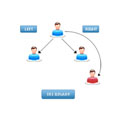
Whether you’re about to launch your first website for your business, or have been around the web for a while, you might be thinking about what kind of content management system to use. Before web content management software was available, businesses relied
on static pages being uploaded directly to servers in order to publish their websites. For various reasons, some organizations continue to update websites this way, and have serious limitations on their ability to scale and
improve their web presence.
If your website doesn’t have a content management system, and you think maybe it’s time to make the change, get to know the top reasons for using a CMS.
Benifits -
Multiple editors - If you need to give website editing access to several people, there’s no better solution than a content management system. It’s the best way to provide limited, focused access to the areas of your site
that need to be updated without opening up the entire site for unintended or unsanctioned changes.
Governance - A true content management system designed for multiple content contributors doesn’t stop at content creation and publishing. It allows you to customize and implement an editorial process or workflow to
ensure all content is reviewed and approved by the right people prior to going live.
Ease of use - Making the management and upkeep of your website a coding-free non-technical task helps you get updates live faster, and also opens your site to more content from a larger group of contributors.
Analytics - If you’re still uploading static pages, you might not have a good way to collect data on content performance and effectiveness. Measuring the impact of your content is critical to making it a business driver,
and a CMS should enable you to track performance, or easily integrate third party tools to help you do so.











